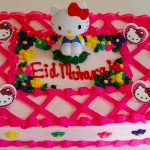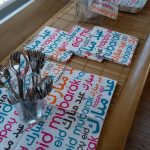“I didn’t want to spend another Eid alone.”
“I didn’t want to spend another Eid alone.”
Non-Muslims must find it difficult to understand why every year Muslims gleefully anticipate the coming of Ramadan, a month of foregoing food and drink from sunrise to sunset. It must seem like a strange custom to rejoice self-inflicted starvation; if anything, I felt the same way before I became Muslim 20 years ago.
The first time I experienced Ramadan, I was Catholic. A friend of mine and I were invited to fast along with the Muslim Student Association for one day. We accepted it more as a challenge than as an opportunity for spiritual enlightenment, all the while, not knowing what to expect.
We set out with bravado, ready to power through our winter Ramadan fast. It went well until about 4:30 pm when weakness started to grip us and our minds started to go fuzzy. At first, we didn’t want to admit to each other we couldn’t make it. I don’t remember who spoke first, but we were soon discussing what to eat. We didn’t want to eat a full meal and ruin the eating ceremony at the mosque a few hours later, so we settled on sharing a flour tortilla that my friend’s roommate had in the refrigerator. I can still remember how delicious the tortilla was.
Since that first Ramadan, many moons have passed, (literally, as Muslims follow a lunar calendar) and I’ve experienced many Ramadans. I’ve been married, divorced and now I’m a single parent. It was challenging enough as a married revert to put together a decent Ramadan, but now alone, it became almost impossible.
In the Muslim world, divorce is taboo and it has nothing to do with Islam and everything to do with culture. The divorcée is a social leper, ostracized from polite society. The stigma around being a divorced woman is an assumption that good girls don’t get divorced. So being a revert without a Muslim family means no community. Ramadan often felt more like a punishment rather than a celebration. Ramadan is a time of community; and joy and after returning to the United States after almost five years of living in the Gulf, Ramadan in the US was a culture shock. Add in a divorce and being in a new community, Ramadan was proving to be a challenge for practical and logistical reasons for both my children and me.
After returning home to Los Angeles after several years of living in Dubai, I made an effort for years to make Muslim friends and when Ramadan rolled around, I would take my children to the mosque for iftars to break our fast and be with a community. I tried to be part of a community, but everyone was too busy to include us in their lives and without a husband or Muslim father, we weren’t appropriate dinner guests. It was depressing at first, but like most things, I got over it and looked for a solution. Muslims were busy celebrating Ramadan with their families, so I decided to do the same. I have a family too and I was determined to make Ramadan work for me and my family, and knew I had to look for more creative solutions that required flexibility not only on our part, but from my parents as well.
My parents aren’t religious people, my step-father is an atheist and the mix of Muslim and non-Muslim living together in the same house made for interesting times, especially during Ramadan. I’m sure it was a challenging situation for my parents, but they were always accommodating and respectful of our differences.
Ramadan was a blessed month and I wanted to capture that. I wanted my children to experience that again so almost every night, my children and I broke our fast with my mother and step-father, and as we chose to spend this special time with them, it brought us closer. We still went to the masjid on the weekend and during the last ten nights of Ramadan. The difference was we no longer were dependent on anyone else to make Ramadan special.
The choice I made to stay home with my family also made Ramadan a lot easier for all of us. Even though we tried to be courteous, waking up to eat an hour before dawn to cook and eat made me feel rude. The calories and water we needed to eat throughout the night also challenged the dynamic in the house. Our schedules were too off, but after we started to share our Ramadan journey with my parents, it made them feel part of what we were doing and not like a foreign ritual.
I didn’t want to spend another Eid alone. I wanted to have a party of our own so my children could feel that Eid was not just another day. So I decided to invite our family and neighbors to join us for an Eid celebration. We are blessed with great neighbors and I could not think of a better group to celebrate Eid with than our neighbors and family. We sent out the invitations, prepared for the party and waited for our guests to arrive. It was a tremendous success. It gave us back a family and new friends to spend our Eid with.
Muslims didn’t have a place for us and I’ve come to terms with that. I had to find a space for my children and I. I know the purists out there will find this disturbing, but I found my place between worlds.









